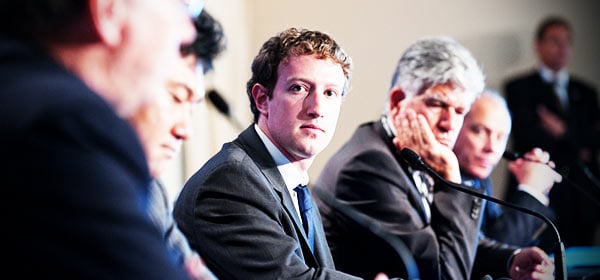You’d be forgiven for thinking all that you read in the news and on social media is borne of legitimate sources, but some of it is ‘fake news’ and thankfully, we may soon be seeing less of it.
Most people have an inherent trust in the integrity of news publications. And if they see a news item over and again, it legitimises it even further. And yet, fake news has become so mainstream, that it’s difficult to sift the wheat from the chaff.
To combat the fake news uprising, Facebook has announced a new tool that labels misinformation as ‘fake news stories’, using internet fact-checking websites such as Snopes.com and PolitiFact, so users will no longer be fooled into thinking that everything they read is true.
“While we don’t write the news stories you read and share, we also recognise we’re more than just a distributor of news. We’re a new kind of platform for public discourse – and that means we have a new kind of responsibility to enable people to have the most meaningful conversations, and to build a space where people can be informed,” said Facebook CEO Mark Zuckerberg.
Facebook’s appointed fact-checkers are non-partisan entities that are required to sign a ‘Code of Principles’ created by the Poynter non-profit school for journalism.
Any articles that appear on Facebook which seem illegitimate are analysed by these fact-checkers and labelled as a ‘Disputed by Snopes.com and PolitiFact’.
The social media giant also has a facility for readers to label a story as fake, by tapping at the top right-hand side on ‘It’s a fake news story’. Once a story is flagged, it is checked by third-party fact-checkers for its legitimacy, then labelled accordingly.
Facebook is also curating a list of suspicious newsfeeds and websites that have been caught out by its algorithms.
Google has also joined in on the fake news hunt, after copping flak as a spreader of mistruths. Because Google operates on a popularity response rather than ‘true’ trusted results, some of its popular, but deceptive, content has been confused with real news. In response, the search engine recently launched its own algorithm that analyses and labels fake news stories as such.
Opinion: Is this a slippery slope?
These fake news filters are one small step towards restoring faith in the news cycle, but they may also be the first step on a slippery slope of censorship and control of world news.
Let’s face it: fake news has become epidemic. So much so, that it was heralded as the Macquarie Dictionary’s word of the year in 2016.
If you’re as sick as we are of hearing political figures labelling any story that opposes their agenda as ‘fake news’, but then using misinformation to suit their own agenda, then, thankfully, these fact-checking tools and algorithms may be the answer to our yearning for some truth.
However, it’s worth pondering the notion that, while these fact-checkers may seem as if they’re a saviour, what if they were to fall into the wrong hands?
Would we be living in a world where all information is censored and subject to approval?
I recall the Nazis taking control of the Bauhaus – once a respected art school – and turning it into a propaganda machine with the sole purpose of brainwashing all Germans into thinking that the rest of the world was inferior. Remember Mother Russia’s infamous control over all things art and media, allowing only what it deemed fit for public consumption? Or what about the political propaganda of modern-day North Korea and China?
Hopefully, these fact-checkers won’t take us down this path. They may be in safe hands currently, but they’re also still under the control of monolithic social media and internet machines that are attached to corporate interests. Who’s to say that this interest won’t have some future sway when it comes to what information is released to the public?
I’m all for improving the legitimacy of news. Yes, the responsibility should be on the journalists and reporters who write the news, backed up by rigorous fact-checking by copy-editors and sub-editors. But there must also be some modicum of accountability on the reader to make up their own mind as to what is real and what is not.
And you know? Taken with a grain of salt, some fake news is just plain fun to read.
My fear is that, should these fact-checkers one day be the final filter, all you’ll read will be homogenised and pasteurised by some artificial intelligence managed by those who hold the reins of power – the rich, privileged and those with a vested interest who can afford to buy their way past these filters – and then what you read may end up being a more refined version of what they want you to read.
What do you think of the implications of these fact-checking algorithms?
Related articles:
Do you believe everything you read?
Take control of your Facebook feed
Social media: a force for good or evil?

